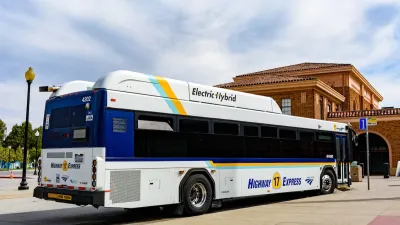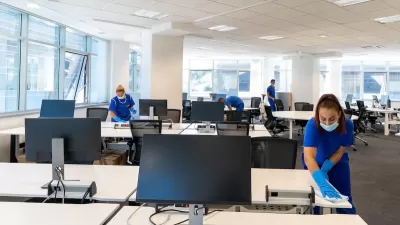Suburban growth in the DC area has been fueled by low gas prices and abundant freeways. Expensive gas has changed this growth paradigm as commuters shift to public transit and seek close-in homes. Will government respond to the change in the market?
"As more and more families reconsider their dreams, land-use experts are beginning to ask whether $4-a-gallon gas is enough to change the way Americans have thought for half a century about where they live. Since the end of World War II, government policy has funded and encouraged the suburban lifestyle, subsidizing highways while starving mass transit and keeping gas taxes much lower than in some other countries.
Local land-use policies kept housing densities low, pushing development to the periphery of metropolitan regions and forcing families who wanted their dream house to accept long commutes and a lack of any real transportation choices other than getting behind the wheel.
"There is a whole confluence of government policies...that have subsidized sprawl," said Bruce Katz, director of the Metropolitan Policy Program at the Brookings Institution.
But there's been a radical shift in recent months. Americans drove 9.6 billion fewer highway miles in May than a year earlier. In the Washington area and elsewhere, mass transit ridership is setting records. Last year, transit trips nationwide topped 10.3 billion, a 50-year high."
Thanks to Preston Schiller
FULL STORY: OIL SHOCK: Gas Prices Apply Brakes To Suburban Migration

Alabama: Trump Terminates Settlements for Black Communities Harmed By Raw Sewage
Trump deemed the landmark civil rights agreement “illegal DEI and environmental justice policy.”

Planetizen Federal Action Tracker
A weekly monitor of how Trump’s orders and actions are impacting planners and planning in America.

The 120 Year Old Tiny Home Villages That Sheltered San Francisco’s Earthquake Refugees
More than a century ago, San Francisco mobilized to house thousands of residents displaced by the 1906 earthquake. Could their strategy offer a model for the present?

Opinion: California’s SB 79 Would Improve Housing Affordability and Transit Access
A proposed bill would legalize transit-oriented development statewide.

Record Temperatures Prompt Push for Environmental Justice Bills
Nevada legislators are proposing laws that would mandate heat mitigation measures to protect residents from the impacts of extreme heat.

Downtown Pittsburgh Set to Gain 1,300 New Housing Units
Pittsburgh’s office buildings, many of which date back to the early 20th century, are prime candidates for conversion to housing.
Urban Design for Planners 1: Software Tools
This six-course series explores essential urban design concepts using open source software and equips planners with the tools they need to participate fully in the urban design process.
Planning for Universal Design
Learn the tools for implementing Universal Design in planning regulations.
Clanton & Associates, Inc.
Jessamine County Fiscal Court
Institute for Housing and Urban Development Studies (IHS)
City of Grandview
Harvard GSD Executive Education
Toledo-Lucas County Plan Commissions
Salt Lake City
NYU Wagner Graduate School of Public Service





























